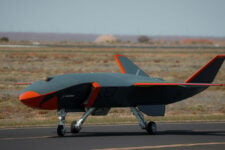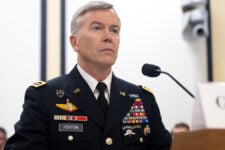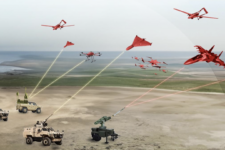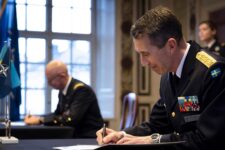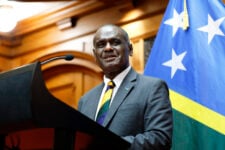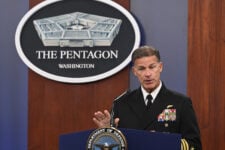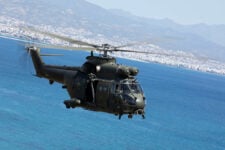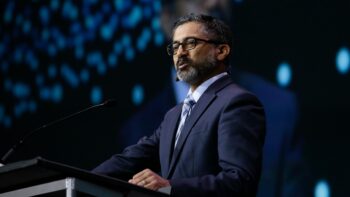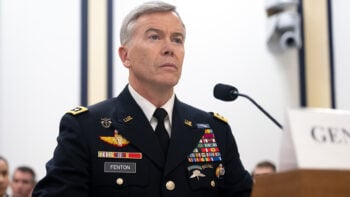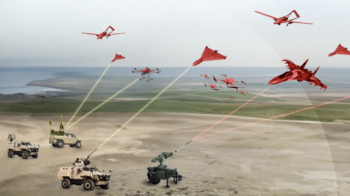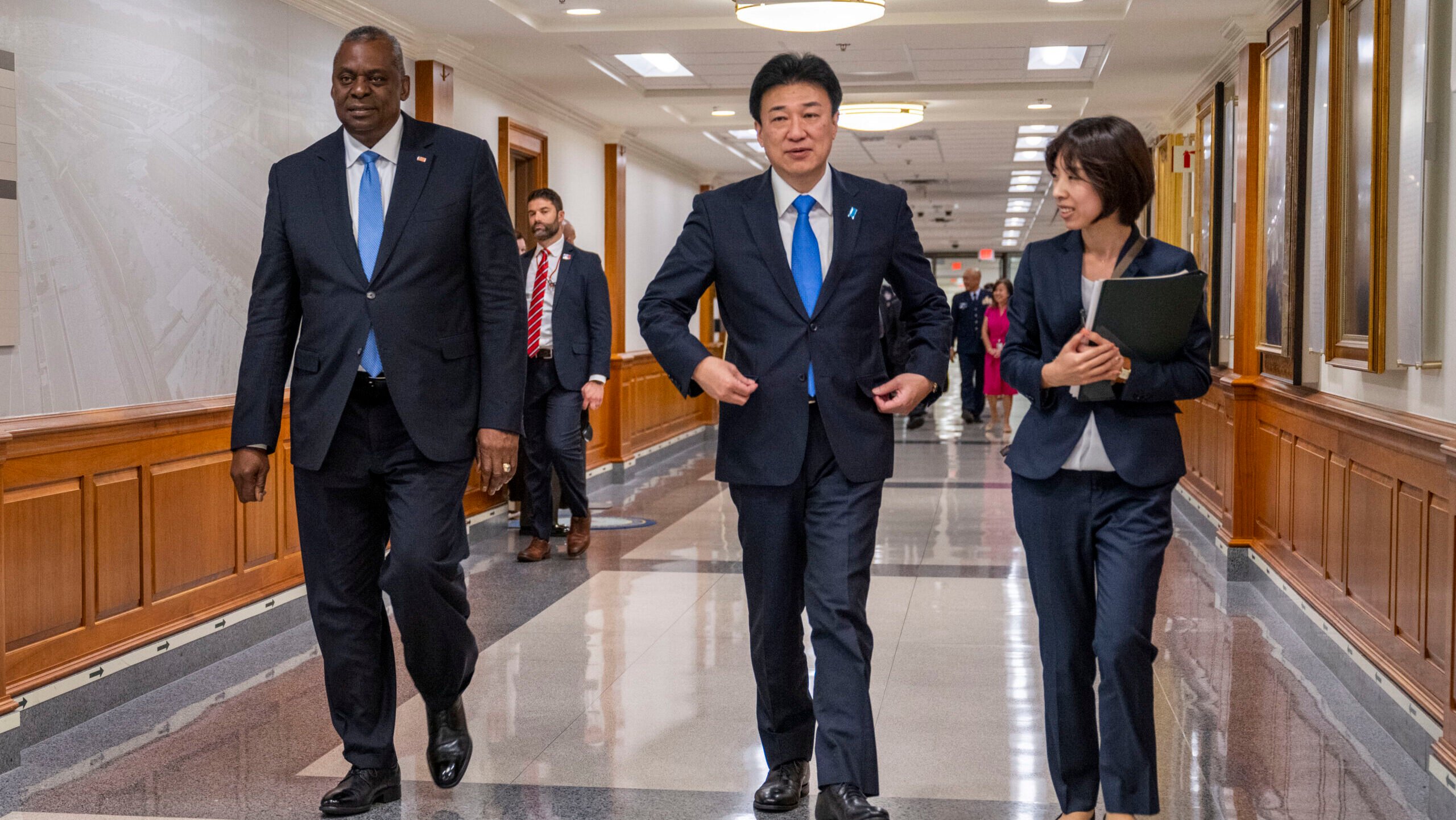
Secretary of Defense Lloyd J. Austin III walks with Japan’s Defense Minister Minoru Kihara during a bilateral exchange at the Pentagon, Washington, D.C., Oct. 4, 2023. (DoD photo by U.S. Air Force Senior Airman Cesar J. Navarro)
WASHINGTON — As part of his first trip to Washington, Japan’s new defense minister Minoru Kihara announced his goal of expediting Japan’s planned purchase of Tomahawk missiles by a year.
“Japan has been developing domestically manufactured standoff missiles which will be utilized for counterstrike capabilities,” Kihara told an audience at the Hudson Institute today, speaking through a translator. “However, this will take time, so we decided to acquire Tomahawks from the US in the meantime.”
The original schedule had Japan purchasing Block V missiles in January 2026 and 2027, but the new plan will see up to 200 Block IV missiles purchased by January 2025, The Japan Times reported.
“I discussed this plan with [US Defense Secretary Lloyd Austin] during our meeting yesterday, and I expect necessary procedures for [congressional] approval will be taken by the US government,” Kihara said, before acknowledging that he is “a little bit worried about” the current chaos that has engulfed Congress.
In December 2022, Prime Minister Kishida Fumio signed off on an ambitious plan to expand the country’s military power. At the core of that expansion were three documents: a national security strategy, a national defense plan and a five-year procurement plan.
“An estimated $320 billion is to be spent in this initial period, which begins next fiscal year and runs through 2027,” the Council on Foreign Relations wrote about the overhaul in December.
Notably, under the new plan, Japan shifted its tone with respect to the threat China poses to both the island nation and the larger international community.
“Earlier language expressed ‘concern’ about China’s activities but new language states that they have ‘become a matter of serious concern for Japan and the international community, and present an unprecedented and the greatest strategic challenge,’” wrote Shin Kawashima, a professor at the University of Tokyo.
The new documents also call out the importance of “counterstrike” capabilities, such as the Tomahawk missile. “The ability to counterstrike is almost entirely aimed at responding to Chinese short-range missiles,” Kawashima wrote.
Earlier this year, Kishida visited the US for a trilateral meeting with President Joe Biden and South Korean President Yoon Suk Yeol at Camp David in Maryland.




